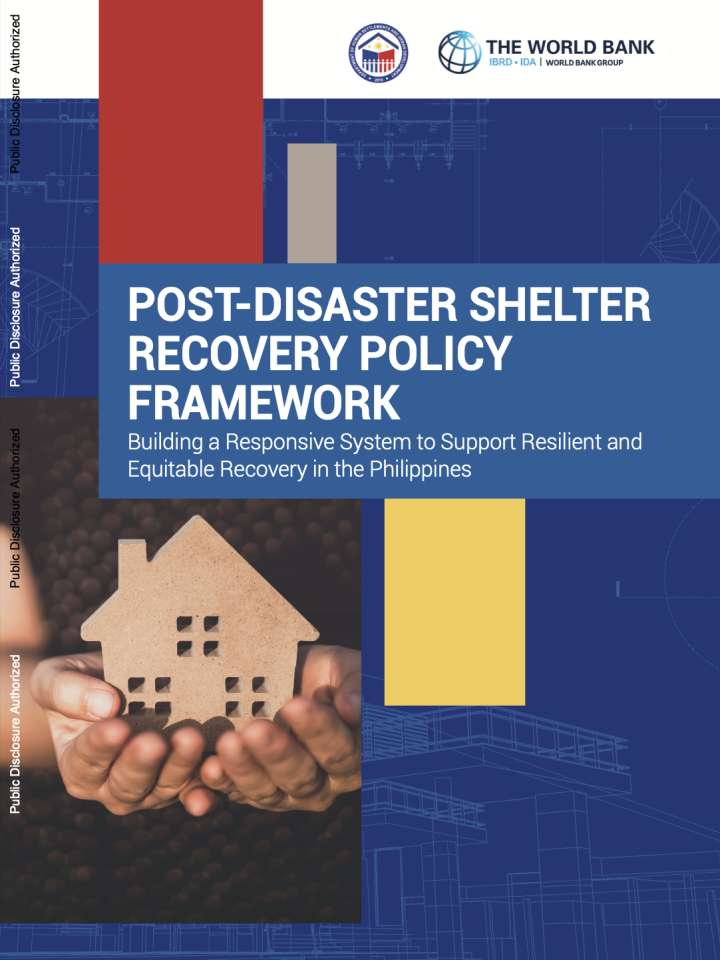Post-disaster shelter recovery policy framework: Building a responsive system to support resilient and equitable recovery in the Philippines
This paper assesses post-disaster shelter recovery policy frameworks in the Philippines by building a responsive system to support resilient and equitable recovery. Every year, shelter in the Philippines is being lost to climate-related events and other disasters. such as tropical storms, flooding, earthquakes, and volcanic eruptions. It has been estimated that, on average, 300 thousand shelter units are affected by disasters each year. One million units were damaged or destroyed by Yolanda in 2013 alone. Once people are displaced from their shelters, it takes years before they are adequately rehoused. Most often, the hardest hit are poor and informally settled families whose shelters are particularly vulnerable. The country has extensive experience on shelter reconstruction and recovery and has tried innovative approaches in the past; for instance, the government has provided cash subsidies to households and empowered local groups to manage the reconstruction of their communities.
The paper finds that more innovation is needed and programs that work should be scaled up. The Philippine experience and learnings from disasters should build the government’s capacity to better manage post-disaster shelter recovery, even while disaster impacts increase as the result of climate change, urbanization, and the increasing number of informal settlers. The purpose of this Post-Disaster Shelter Recovery Policy Framework (PDSF) is to establish a guide for continuous improvement of the country’s capacity to ensure full recovery of households and communities affected by natural disasters. It aims to enable better coordination, optimize the use of financial and human resources, align various policies and administrative and funding initiatives, and empower those affected to recover and reduce the impact of future disasters.
Explore further
